I. Introduction
Embarking on the journey of establishing a thriving business in Dubai demands more than entrepreneurial zeal; it necessitates a nuanced understanding of legal compliance. In this bustling global business hub, where aspirations converge from around the world, aligning with the legal framework is not just a requisite; it is a strategic imperative for the sustained triumph of any venture.
II. Legal Framework in Dubai
Dubai’s economic stability rests upon a robust legal system, a comprehensive framework intertwining regulations from various authorities. The legal terrain is diverse, spanning the Dubai International Financial Centre (DIFC) to mainland regulations, demanding meticulous attention. Entrepreneurs need to grasp the nuances to navigate this complex landscape seamlessly.
III. Importance of Legal Compliance
Beyond being a mere checklist item, legal compliance is the bedrock upon which a business builds its reputation. Evading legal troubles isn’t just about steering clear of lawsuits; it’s about fostering an image of trustworthiness and reliability. In a market fueled by reputation, compliance is the currency of credibility.
Understanding the critical role legal compliance plays in the business ecosystem is essential. Beyond ensuring adherence to laws, it acts as a strategic tool for market positioning and long-term sustainability. By prioritizing compliance, businesses signal their commitment to ethical practices, earning the trust of customers, partners, and investors.
IV. Key Areas of Legal Compliance
Within Dubai’s dynamic business ecosystem, several domains demand vigilant adherence. Securing the necessary licenses, navigating intricate employment laws, understanding tax regulations, and safeguarding intellectual property rights become not just legal necessities but strategic imperatives for the seamless functioning and longevity of businesses.
● Licensing Requirements
Obtaining the necessary licenses is the first crucial step. From trade licenses to specific industry permits, businesses must navigate a labyrinth of regulatory requirements. Understanding the intricacies of these licenses and ensuring their timely renewal is vital for uninterrupted operations.
● Employment Laws
Dubai’s employment laws are designed to protect both employers and employees. Businesses must be well-versed in matters such as working hours, leave policies, and termination procedures. Compliance with these laws not only prevents legal issues but also contributes to a positive workplace culture.
● Tax Regulations
Navigating the tax landscape is integral to financial planning. Understanding the various tax structures, incentives, and obligations is crucial for businesses to optimize their financial strategies while remaining fully compliant with the law.
● Intellectual Property Rights
Safeguarding intellectual property is paramount in a knowledge-driven economy. Registering trademarks, patents, and copyrights ensures that businesses can protect their innovations and creations, fostering a culture of innovation.
V. Challenges in Legal Compliance
The diversity that characterizes Dubai’s business landscape brings not only opportunities but also challenges in compliance. Navigating cultural nuances isn’t merely a formality; it’s a necessity for businesses to integrate seamlessly. Staying abreast of the ever-evolving legal landscape, a task in itself, becomes crucial for businesses eyeing long-term success.
● Cultural Differencs
Operating in a global business hub like Dubai requires an understanding of diverse cultural norms. Adhering to local customs and respecting cultural differences isn’t just a matter of courtesy; it is integral to building strong relationships with clients, partners, and employees.
● Changing Regulations
Dubai’s regulatory landscape is dynamic, with laws evolving to meet the demands of the rapidly growing economy. Businesses must invest in staying informed about these changes to ensure continuous compliance. Regular legal updates and consultations with legal experts are essential to navigate this ever-shifting terrain.
VI. Strategies for Ensuring Compliance
Mitigating the risks associated with legal non-compliance necessitates proactive strategies. Regular legal audits, an investment in competent legal counsel, and the implementation of comprehensive employee training programs emerge as not just best practices but lifelines for businesses. Beyond ticking legal boxes, these strategies cultivate a culture of compliance.
● Regular Legal Audits
Conducting regular legal audits is akin to a health check for a business. This involves a thorough examination of legal processes, documentation, and compliance with current regulations. Identifying and rectifying potential issues proactively can save businesses from legal headaches down the road.
● Investment in Legal Counsel
Having a legal expert or team on retainer is a strategic investment. These professionals provide invaluable advice, ensuring that business decisions align with legal requirements. From contract reviews to dispute resolution, legal counsel acts as a guiding force in the complex legal landscape.
● Employee Training Programs
Employees are the frontline ambassadors of legal compliance. Comprehensive training programs ensure that staff is well-informed about relevant laws, ethical practices, and the importance of compliance. This not only reduces the likelihood of legal breaches but also instills a culture of responsibility within the organization.
VII. Case Studies
Real-life narratives amplify the understanding of the correlation between legal compliance and business success. They spotlight businesses that, through unwavering adherence, not only averted legal pitfalls but also emerged as beacons of trust. Conversely, tales of negligence underscore the stark consequences businesses face when legal requirements are treated casually.
● Success Stories
Examining success stories provides insights into how legal compliance can be a catalyst for business success. Businesses that prioritize compliance from the outset often find themselves in a favorable position, gaining the trust of customers, attracting investors, and establishing themselves as industry leaders.
● Cautionary Tales
On the flip side, cautionary tales highlight the repercussions of neglecting legal obligations. From hefty fines to reputational damage, businesses that overlook compliance often find themselves entangled in legal battles that could have been avoided with foresight and due diligence.
VIII. Benefits of Legal Compliance
Legal compliance isn’t a mere shield against legal troubles; it’s a gateway to trust. Businesses that prioritize compliance don’t just comply with laws; they resonate with stakeholders. The trust earned becomes the catalyst for sustainable growth, resilience during challenges, and a magnet for partnerships.
● Building Trust
Trust is the foundation of successful business relationships. Legal compliance signals to customers, partners, and investors that a business operates with integrity and accountability. This trust, once established, becomes a valuable asset that propels the business forward.
● Sustainable Growth
Compliance isn’t just about meeting the bare minimum requirements; it’s about positioning a business for long-term success. By adhering to laws and regulations, businesses create a stable foundation for growth, attracting opportunities and weathering economic uncertainties.
● Resilience During Challenges
In times of economic downturns or unforeseen challenges, businesses with a strong compliance track record are better equipped to navigate uncertainties. Compliance fosters adaptability, ensuring that a business can pivot when necessary without running afoul of legal constraints.
IX. Future Trends in Business Compliance in Dubai
Anticipating the future isn’t a luxury; it’s a necessity for businesses to stay ahead. The integration of technology is poised to redefine compliance processes, making them more efficient and adaptive. As regulations evolve, businesses leveraging technology position themselves as pioneers in compliance.
● Technology Integration
The future of business compliance in Dubai is intricately linked with technological advancements. Automation of compliance processes, data analytics for regulatory insights, and the use of artificial intelligence for legal assessments are expected to become standard practices.
● Adaptive Compliance Strategies
With the regulatory landscape evolving, businesses need to adopt adaptive compliance strategies. This involves not only staying informed about current regulations but also developing systems that can quickly adjust to changes, ensuring continuous compliance in a dynamic environment.
Conclusion
In conclusion, legal compliance isn’t a bureaucratic hurdle; it’s the essence of business sustainability in Dubai. It’s an investment that transcends legality, shaping the very fabric of a business. Prioritizing compliance isn’t just prudent; it’s visionary, laying the foundation for trust, success, and an enduring legacy.
FAQ
Dubai’s strategic location as a global crossroads facilitates easy access to markets in both the East and the West, making it an ideal hub for international trade and commerce.
Dubai’s business-friendly environment is characterized by liberal economic policies, investor-friendly regulations, tax incentives, and 100% foreign ownership options, especially in its free zones.
– Yes, understanding and respecting cultural differences are vital for seamless operations.
– Neglecting employment laws can lead to legal action, fines, and reputational damage.
– Technology streamlines compliance processes, automates documentation, and provides real-time updates on regulatory changes.







